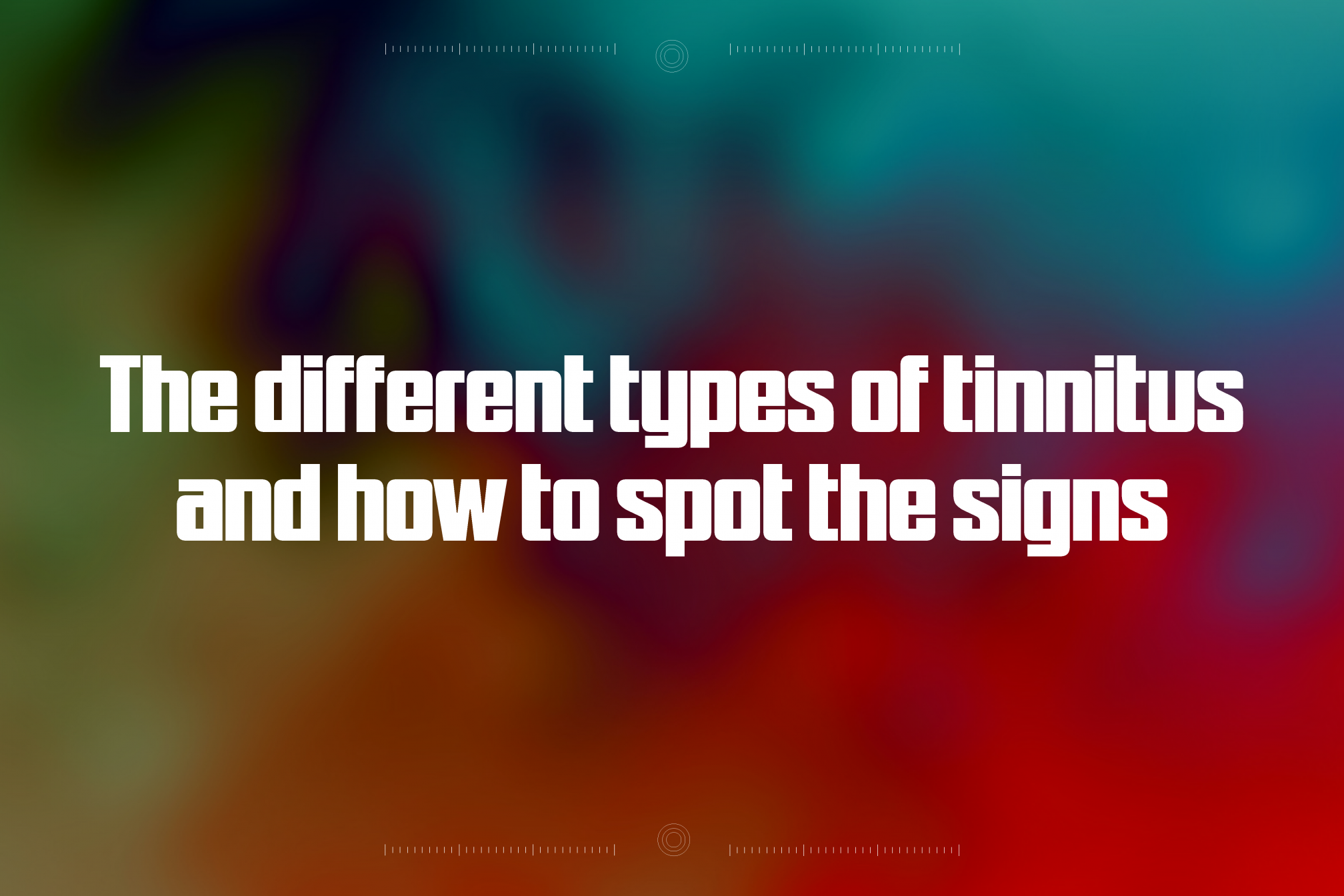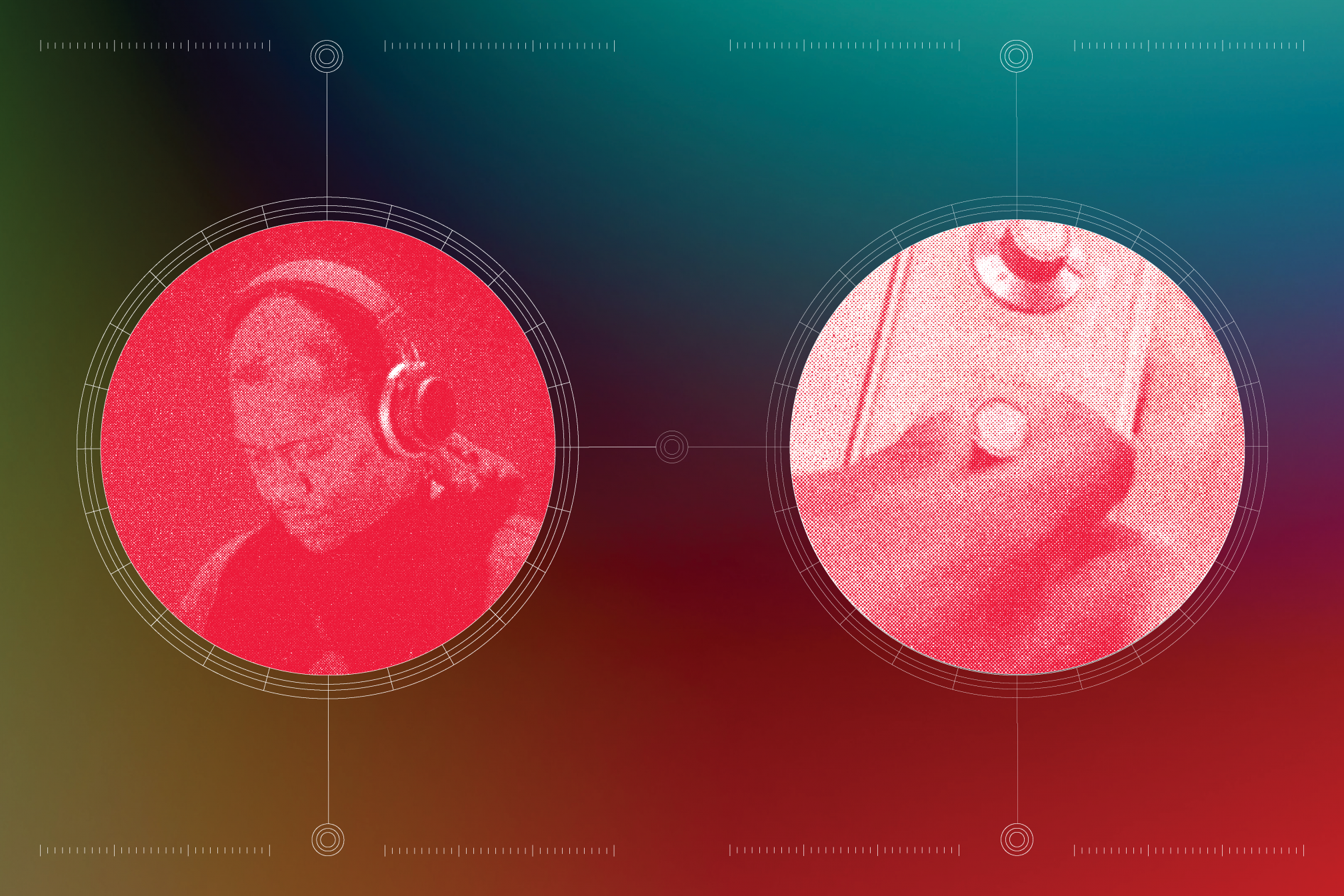 Features
Features
The different types of tinnitus and how to spot the signs
Tinnitus affects millions of people in the UK alone. Here's everything you need to know about the condition and ways to protect yourself from it
Tinnitus Awareness Week 2024 takes place across February 5 - 11. We're joining the campaign with a series of features raising awareness about ear damage and promoting protection. Check out the ongoing series across our website and socials.
Tinnitus can be easily misunderstood. It tends to be thought of as a lingering ringing in the ears that feels endless, yet this isn’t always the case — it comes in different forms. Through years of research, tinnitus has been found to be a highly subjective feeling with the only common denominator being the experience of noise. It is often hallucinatory, but can also real and beat match with your heart.
Research by The Lancet Regional Health in 2022 found that one in seven adults have tinnitus in the UK - totalling more than 7 million people. And it’s not just adults that have been cursed with this ringing phenomenon, as Sonja Jones, Audiologist and Professional Adviser to Tinnitus UK, explains to Mixmag: "Anyone at any age can experience tinnitus with around 1 in 30 children reported to have it”.
Read this next: “My life changed overnight”: Dealing with sudden hearing loss and tinnitus
Tinnitus can be distracting and disturbing for many millions of people, affecting their daily lives and mental health. The sound can be relentless, ruining a night's sleep, your concentration in the day, or listening to your favourite music by whistling throughout the melody.
But if you do find yourself developing tinnitus, the situation is not hopeless. To safeguard against the impact of the condition, it’s important to protect your ears, spot the signs early to prevent further damage, and learn how to alleviate the symptoms.
Mixmag has spoken to experts to pinpoint a range of warning signs, and explain the different forms of tinnitus. Understanding the condition puts you in the best place to protect yourself.

WHAT IS TINNITUS?
Tinnitus is different for everyone. Sometimes it can happen slowly and for others it can appear overnight. Once it’s developed, the symptoms you may notice include a phantom sound in your ears (e.g ringing, buzzing or whistling, which can be high or low pitched), or a rhythmic pulsing or whooshing sound in time with your heartbeat.
Read this next: 9 ways to make living with tinnitus easier
THE DIFFERENT TYPES
Subjective tinnitus
The most common type of tinnitus is subjective tinnitus, accounting for 95% of all cases according to Loop Earplugs. Versions of this can last a couple of days at a time, after exposure to loud music for instance. It can also come and go and vary in length and intensity.
Objective tinnitus
A rare form of tinnitus is objective tinnitus. Caused by a problem such as high blood pressure or muscle contractions, this type of tinnitus can be heard by other people using either a stethoscope or microphone. It can even be recorded.
Subtypes
Musical tinnitus
Tinnitus can be subjective and musical tinnitus proves this. For this form, a person can have musical hallucinations of layered tones recreating a melody. This is more common for those who have had hearing loss and tinnitus for some time.
Pulsatile tinnitus
Pulsatile tinnitus syncs with your heartbeat and can be described as having a “rushing or roaring” sound. This form of tinnitus could be caused by a blood vessel disorder or another medical issue.
EARLY SIGNS
It’s important to remember that tinnitus is not a cause of hearing loss, it’s a symptom of the condition. Signs that your hearing is damaged can include having to ask people to repeat themselves in conversation or constantly turning the volume up on the TV.
One way to notice if you could be risking your hearing is if you are finding it difficult to speak with someone who is around two metres away without shouting due to background noise, the RNID warns. There are also decibel reader apps available to download for free which can keep you informed on noise levels, and whether you need to use ear protection. Noises above 85dB are considered the point where exposure can cause damage.
Ultimately, protecting your ears is the best method to combat tinnitus developing, or stop it from getting worse. You should wear earplugs in loud environments. Club nights and gigs are a definite, but it’s also advisable in settings such as the pub, a house party, or even public transport. If your ears are ringing or buzzing after being in a loud environment, it suggests that you have been in a space where noise levels are dangerously high.
Keep reading for more information on the causes and ways to protect yourself.

CAUSES
Tinnitus is caused by auditory damage to either the cochlear of the inner ear, the auditory nerve, or the areas of the brain that translate sound. Hearing health and wellness company Amplifon states that 90% of tinnitus cases accompany hearing loss, and an individual can have both hearing loss and tinnitus from noise damage. To get a better understanding of what can cause tinnitus here is a full list of symptoms so that you can be better prepared.
Many of these causes are easily avoidable and there are many ways to keep your hearing safe in these situations.
Noise exposure
The World Health Organisation (WHO) estimates that one billion young people are at risk of permanent hearing loss and tinnitus through unsafe listening practices. This estimate notes that one of the main causes is volume levels at recreational settings such as nightclubs, gigs and headphones.
As well as music settings, those who work in industries using loud equipment from carpenters to agriculture workers to bartenders are at risk of developing tinnitus through regular loud noise exposure. In fact, a single sudden loud noise can cause tinnitus.
Franki Oliver, Audiology Manager at the RNID, says: "Experts agree that hearing damage can start when noise is 85dB or above. That's a problem when you consider music at clubs and concerts is often around 110dB, and some headphones play music that's just as loud when the volume is turned right up." To put this into perspective, 85dB is roughly equivalent to a street full of traffic or a noisy restaurant.
“If you regularly go to gigs, clubs, festivals, or anywhere with loud music, it’s a good idea to use earplugs,” Oliver urges. “Most venues will have foam earplugs for free behind the bar, but they might not give the best sound quality. Instead, it might be worth opting for a reusable pair specifically designed for loud venues, they protect your hearing from harmful sounds while letting you hear the music, preserving the atmosphere you can only get from being in a live venue!”
Loud noise is one of the most common causes of tinnitus as it surrounds our everyday lives. A common example of this is headphones being used at an unsafe level. Frequent headphone users should pay attention to how loud the volume is and take regular breaks to let their ears rest. It is tempting to rack up the volume to drown out background noise, however, this can put your hearing at risk. Noise-cancelling headphones that block outside noise and mean you can easily hear lower volumes are encouraged.
Oliver says: “Most importantly, don’t ignore any warnings you get about volume from your device, as tempting as it may be! These alerts are letting you know that you could be putting your hearing at risk, so do try and follow the advice your device gives you.
“It’s not about stopping the things you enjoy, but instead being aware of the risks of loud noise, and taking simple steps to protect your ears for as long as possible.”
Medication
In some cases, tinnitus is caused by particular drugs including aspirin, several types of antibiotics, anti-inflammatories, antidepressants, as well as quinine medications. According to WebMD, tinnitus is cited as a potential side effect for around 200 prescription and non-prescription drugs. If you're concerned about any medication you're taking, you must speak to your GP first.
Earwax
Something so simple as a blockage in the ear canal caused by earwax or an ear infection can result in tinnitus. By going to your local audiologist they can help support and treat this.
Head or neck injury
A neck injury such as whiplash has been known to cause some of the most severe cases of tinnitus, according to a joint study by the Oregon Health & Science University and US Department of Veterans Affairs. The report found that compared to other people with the condition, those who gained it via a head or neck injury reported louder sounds, more headaches, difficulty concentrating, and a higher rate of mental health issues such as depression.
There is currently no cure for tinnitus, and as Tinnitus UK spokesperson Nic Wray explains, tinnitus research receives 40 times less funding than other conditions with a similar impact. However, there are treatments and things you can do to reduce this risk.
If you are concerned that you may have tinnitus please visit your GP for advice.
For more information on tinnitus, check out Mixmag’s list of ways to make living with the condition easier here. Advice can also be found in the RNID’s free tinnitus guide here.
Becky Buckle is Mixmag's Multimedia Editor, follow her on Twitter



